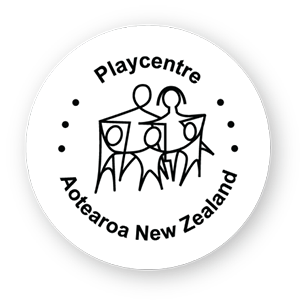Written by Keryn O’Neill MA, PGCertEdPsych, Knowledge Manager
Poipoia te kākano kia puawai
Nurture the seed and it will blossom.
We all wish for a positive future for our tamariki, and we all gain when this wish is realised. One of the skills tamariki need in order to develop in healthy ways and to have a bright future, is to learn to handle their feelings.
are not born with these skills, but being with adults who understand, and having lots of practice, will help to develop them. Adults are key in helping healthy learning here.
An important skill for pēpi and tamariki to learn is to recognize, and to know how to handle, all the emotions that are part of being human.
Why it matters
We are highly interconnected – different parts of our body influence, and are influenced by, each other (e.g. our brain and our gut); likewise, we affect, and are affected by, those around us, and our environment.
When we are thinking about how tamariki grow and develop, everything is woven together. Their physical, cognitive (thinking) and social (how they get on with others) development influence each other.
An important skill for pēpi and tamariki to learn is to recognize, and to know how to handle, all the emotions that are part of being human.
This emotional development is important in its own right, but it can also affect other areas, such as social development. For example, a tamaiti who can handle the disappointment of losing a game will probably find it easier to make friends.
Tamariki have a range of feelings
Tamariki can experience the same kinds of feelings that adults do. For example, they may feel sad, worried, happy, angry, frustrated, embarrassed/whakamā, or excited, and sometimes several of these at the same time. A tamaiti might feel both excited and nervous before a kapa haka performance, for example.
Having a range of feelings is normal, at any age. Research tells us it is healthy for tamariki to be able to express their feelings in a healthy way, and not just the ones that are easier for us to be around, such as happiness.
Learning to name their feelings
Tamariki might not always know why they feel the way they do, nor be able to explain how they’re feeling. They may need some help with this part of their learning. Whānau and other adults, such as teachers, have a role in helping tamariki learn to recognise, name and express their feelings.
Adults can help by naming the feelings tamariki seem to be experiencing – “I can see you’re feeling sad about what happened at school today”. We can also help by naming our own feelings -”I’m disappointed that our holiday was cancelled.”
Tamariki show their feelings in many ways
Words are just one way for tamariki to share how they feel, but even when they are old enough to speak, words won’t always be how they show us what they are feeling. Tamariki might show their mood through expressions on their faces, body language, their play or other behaviours.
Having a range of feelings is normal, at any age.
Sometimes these behaviours are not okay. Tamariki need to know that it is okay to feel angry when their little brother destroys their Lego creation, but they also need to know it’s not okay to hit him with that newly remodeled design.
Tamariki learn a lot by watching the way adults handle their own feelings. This is true whether their adults are behaving in healthy ways or in un-healthy ways.
Accept the full range of children’s feelings
We’re often good at celebrating and capturing the ‘positive feelings’ our tamariki experience. It’s just as important that the not-so-positive feelings get some attention too.
If an adult responds in a way that shows they are uncomfortable, a tamaiti might not want to upset or annoy them and so might stop showing their feelings if they sense they are not welcome, or insta worthy. This doesn’t mean the feelings have gone away; it might just mean that the tamaiti now has to process & deal with some potentially big or scary feelings on their own. And, they may feel it’s somehow wrong for them to have these feelings.
Tamariki really need help to deal with the good, the bad & the sometimes ugly side of feelings as they grow. Adults can help with this by accepting a child’s full range of feelings, using words to describe them and modelling suitable behaviours. For example, “I know that you’re feeling really disappointed because you missed out on going on school camp” or “I guess what you saw on TV was kind of scary wasn’t it?”
Help tamariki recognise the feelings of others
As well as learning about their own feelings, tamariki need help to understand that others have feelings too. When we comment, “Nana was so excited to see you after lockdown!” or, “Maia was embarrassed when she tripped over,” we are providing more opportunities to learn about different emotions, as well as growing understanding and empathy for how others are feeling.
Short-term responses do not always help in the long term
Ignoring, minimising or even dismissing children’s feelings by telling them to ‘stop crying’, or ‘get over it’ may seem to work in the short term. But, it can make it harder for tamariki to understand and experience emotions in a way that’s healthy – for them and those around them.
The situations that bring out strong feelings in our tamariki may not always seem important compared with our adult concerns. A birthday party cancelled in lockdown might not seem a big deal to us, particularly compared to our concerns about money or the health of older whānau, but it’s natural for tamariki to sometimes have strong feelings about things that matter to them.
It is worth remembering our impact as role models for our tamariki. If we can (usually!) respond with kindness and patience when feelings are running high, our tamariki will be more able to do the same with their sibling or cousin when needed.
Conclusions
Like other things our tamariki learn, learning to handle their feelings takes time and lots of practice. They also need the support of adults to learn to understand and express their feelings in healthy ways. Both tamariki and their big people will make mistakes along the way. This too is part of being human.
Glossary of Māori terms:
Pēpi baby/babies
Tamaiti child
Tamariki children
Whānau extended family
Whakamā shy, embarrassed




